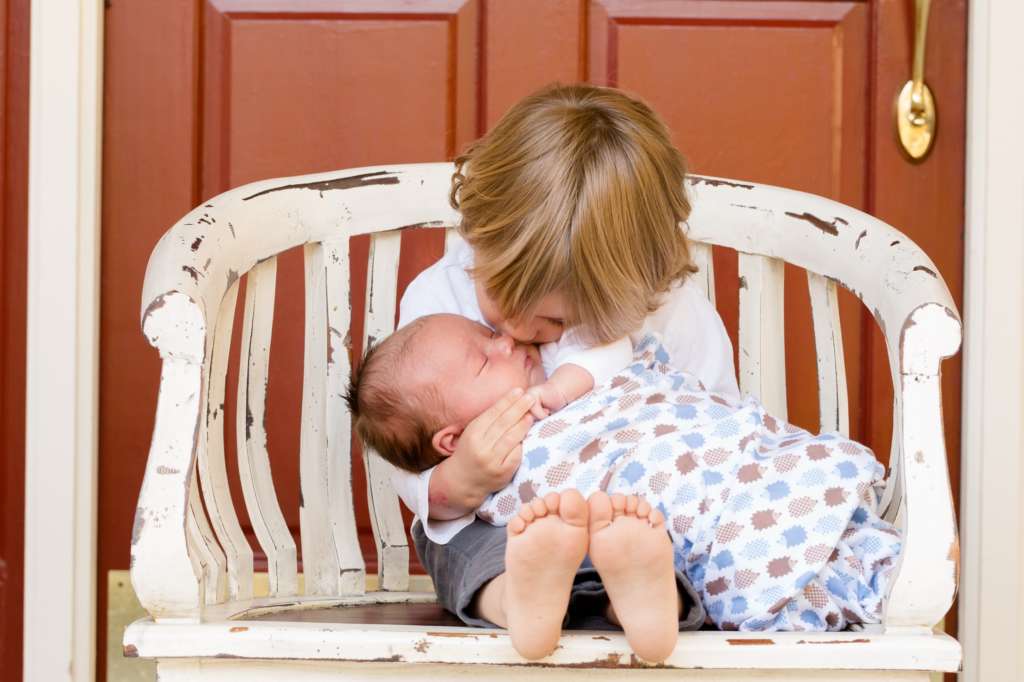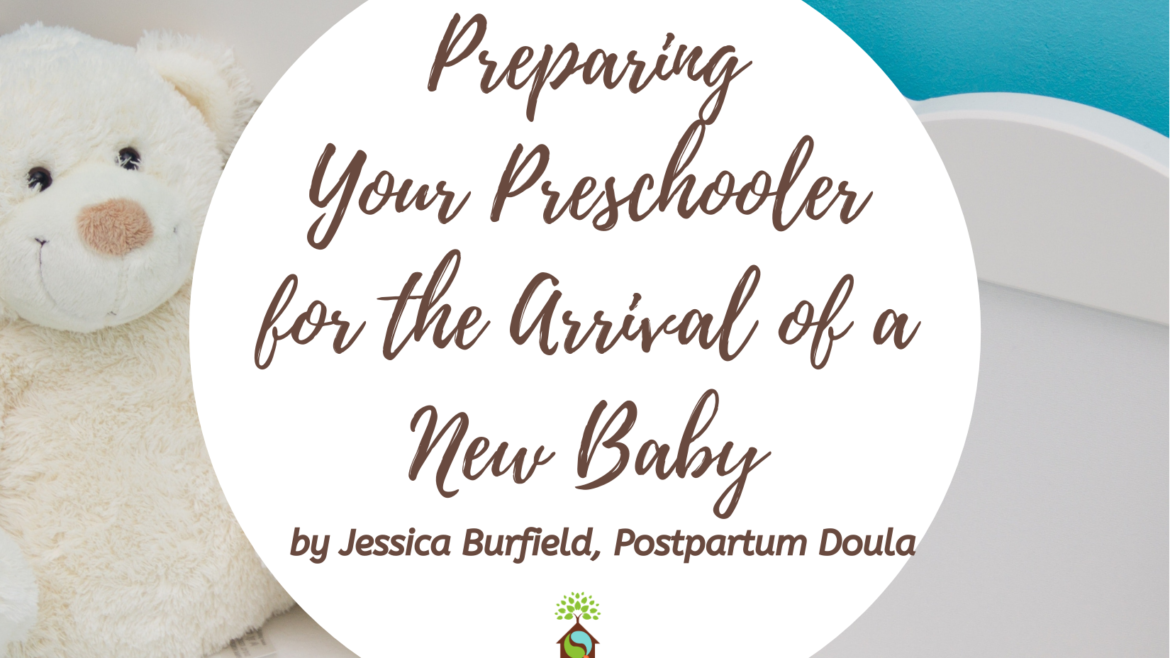Preparing Your Preschooler for the Arrival of a New Baby
by Jessica Burfield, DONA International-trained Postpartum Doula
Bringing a new baby into your family is an exciting event! But for toddlers and preschool-age children, this new development in their life will take some getting used to. Here are some tips on making the adjustment as smooth as possible for the entire family.
The excitement toward a new baby and the adjustment period will depend on the age of your children. Those over three years of age will generally have a sense of excitement over a new baby. Children under three will likely take longer to adjust to the change, so laying the groundwork before the baby arrives will be key.
That being said, it is hard for children under the age of 2.5 years to understand what is happening and they cannot grasp the passage of time. In this case it is best to wait until the last trimester, or when they start to notice something is different with you, to start to discuss the baby.

During Pregnancy
Involve your children as much as possible in your pregnancy. Let them touch your belly and feel the baby move. Let them know that soon the baby will be on the outside and they will be able to see, touch and hold them. Talk to your baby in utero and involve older children in the conversation; they may begin to talk to the baby all on their own.
Children may be wondering how a new baby will affect their life. Help them by making a game out of playing “big brother/sister.”
Books and pictures are great tools to use with toddlers and children. There are many “sibling” books designed to help children prepare for the arrival of a new baby. Some are more detailed than others and provide a wide array of information, so be sure to take a look yourself before sharing with your young children. Baby on the Way and What Baby Needs by William & Martha Sears are both good options. Use your pregnancy as an opportunity to go through your child’s baby book with them. You can explain that things you will do with the new baby are things you also did with your older child when they were a baby.
Children may be wondering how a new baby will affect their life. Help them by making a game out of playing “big brother/sister.” Show them that while baby will need attention from you, there is plenty of room for a helper. Children will learn during your pregnancy how wonderful it is to their parents with bathing, feeding, changing and loving baby. This will get them ready to be a helper after baby arrives, and the role of helper will later evolve into that of teacher as older children begin to show their new sibling how to do things on their own.
After Baby Arrives
Make it a point to let your older children know that they are still important to you even though the new baby takes up a lot of your time. Involve them in the care of the baby but resist the urge to convince the older child that they are now the “grown up” one. They are seeing all of the love and attention the baby is getting so that is enough to make them feel that youngest is “best”. Tell stories to your older child of when you took care of them when they were a baby and how special it is that now you get to care for this baby together.
It’s normal to feel protective of a newborn and to see them as very fragile creatures. This can lead to a lot of commands of, “Be careful” or “Don’t hurt the baby.” These messages will make the child resent the baby and may make them even more devious. Babies are more resilient than they appear and you can easily avoid the above situation by supervising the time your older child is exploring the new baby. If they do end up getting too rough, simply pick up the baby and direct the child toward something else. Then, at another moment, give them a gentle reminder on how to be safe with the baby.
Ease the transition of having a new baby in the home by making sure your older children are receiving gifts – actual gifts, and gifts of time. Have a few small gifts set aside during your pregnancy in the event that a visiting friend or family member brings gifts for baby and mom but not for other siblings. Have a partner spend some extra time with your older children to offset the fact that the baby will be taking up more of mom’s time. Making the time feel special for the child is more important than how long it is or what you do.
Create ways in which you can tend to the baby and also to your older children. Create a basket of special items, such as toys and books, that you bring out only when you are feeding the baby. This is a wonderful way for you to spend time nourishing your baby and creating special moments with your other children. If you feed the baby in various spots of your home, consider keeping baskets in all those rooms so they can be easily accessible when you need them. Wearing your baby in a sling is another great way to make double use of your time. Using a sling to carry and nurse your baby frees your hands to read and play with other children. This will also help with jealousy that may be felt by baby always being held in mom’s arms.
Keep in mind that it is normal for children to regress after the arrival of a new baby. Remember to keep everything in perspective and know that it is not forever. The tips above will help this transition go more smoothly and help you realize the joy in growing your family!

Jessica Burfield is a DONA International trained postpartum doula. She owns Fourth Trimester Madison where she provides judgement-free postpartum support to families in the Greater Madison Area. For more information you can visit www.fourthtrimestermadison.com. To connect with Jessica you can e-mail her at fourthtrimestermadison@gmail.com and find her on Facebook or Instagram @fourthtrimestermadison



